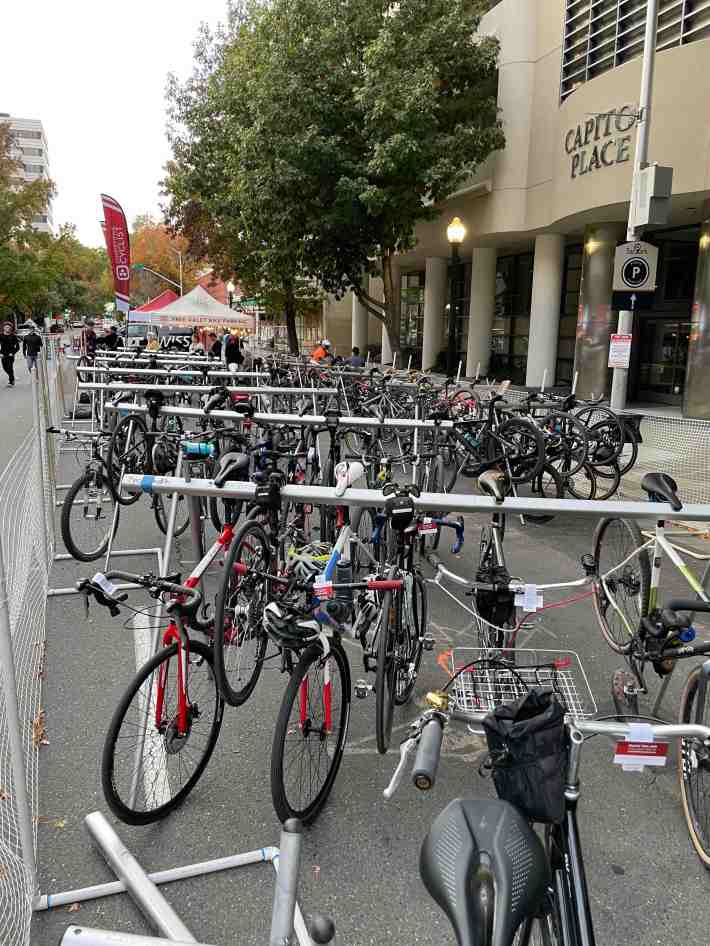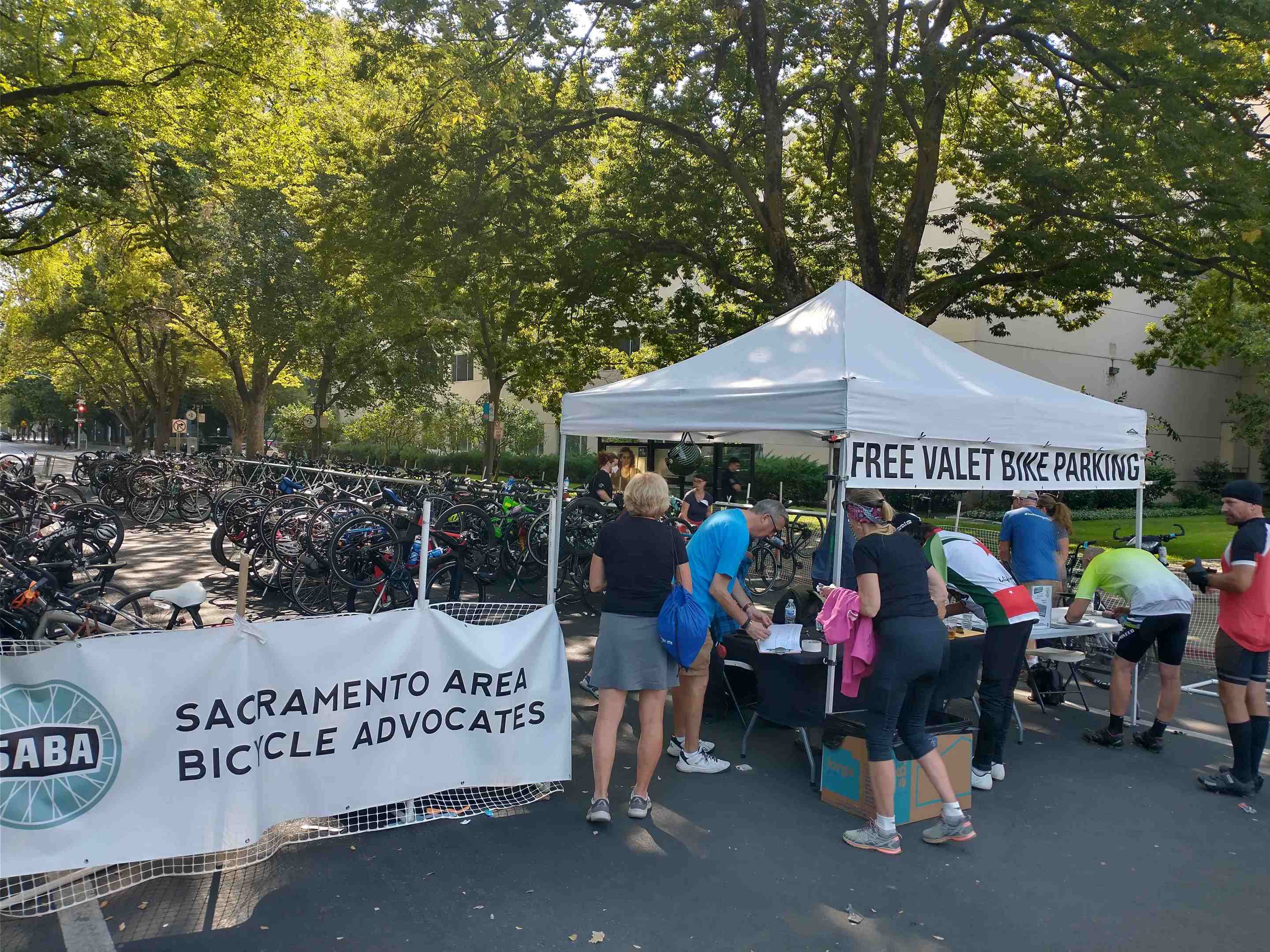The next time you see someone with a red jacket asking to park your vehicle in Sacramento, they could likely be asking for your bike.
California may be known as a car-centric mecca, but one of its capital city's leading bike advocacy nonprofits, Sacramento Area Bicycle Advocates (SABA), is gaining national attention for its massive bike valet program, which parked about 7,350 bikes across a whopping 200 events in 2022 alone. This year, SABA is hoping to park 10,000 bikes — and in the process, get at least that many people out of cars, create a strong revenue stream that can bolster the organization's larger advocacy, and become a model for similar organizations throughout the country.
“It's a really nice model in that we have some organizations that can pay us a lot of money and other nonprofits that can't pay us very much money at all, and we even those out so that we do a lot of events,” said Debra Banks, executive director of the organization.
SABA's program has been around since about 2006. But the concept of bike valet isn’t new, and it's about as simple as it sounds: cyclists can ditch their cars and ride to an event in the city, and a valet will safely park and hold her bike until they come to pick it up. And best of all, the service is free to bicyclists, as all costs go to organizers of the event.

While the bike valet model has long been popular in West Coast cities areas like Portland, San Francisco, and Silicon Valley, SABA has made it a uniquely integral part of their organization. The revenue from the service has allowed them not only to pay their valets, but also fund other much-needed programming, like their Ready Ride Repair Clinics, which provide free bike repair around the city as well as teach riders how to make their own repairs. Most importantly, it also helps to offset the costs of the important but non-billable advocacy work SABA's done for 30 years, like fighting for policies to build safer, greener streets, and against legislation that makes roads unsafe for pedestrians and bicycles.
“Nobody gives you money to do advocacy work,” Banks added. "So it helps pay for these other very important parts of our organization that we want to get done.”
And indeed, much work remains to be done to make Sacramento less car dependent. A 2018 regional transportation study found that about 85 percent of city trips during an average weekday were done by car, while Banks says bike modal share has remained stubbornly low at around two percent. And that car-dominated norm is having big consequences for people on two wheels: last year, Sacramento was named one of the deadliest counties for bike riders, ranking 8th in the entire country for fatalities per 100,000 residents.
“We don't really have an active transportation champion," Banks said. "Someone that always brings it up. We don't have a climate champion either.”
Even without a champion, though, Sacramentoans are still riding. One of SABA "Bike Month" campaign in May pulled in just over 3,000 participants this year, and the number of participating companies increased from 294 last year to 328.
As SABA continues campaigns like these, the revenue from the bike valet service has been a stabilizing force in the sometimes fraught non-profit advocacy world.
“[It] helps with what I like to call our financial blood pressure,” said Deb Banks, referring to how the valet program impacts the overall organization. “It doesn't spike, it stays in a little bit more of an even keel for us.”
For advocates looking to explore bike valet in their cities, Banks encourages them to reach out to organizations like hers to learn more about the many details that are essential to a good program, which include everything from insurance to tents.
“There are a lot of details, actually, to [these kinds of] events,” Banks said. “It can be a pain in the neck.”
When you calculate the benefits for the community and the organization, Banks said, simply, that “it's totally worth it.”






